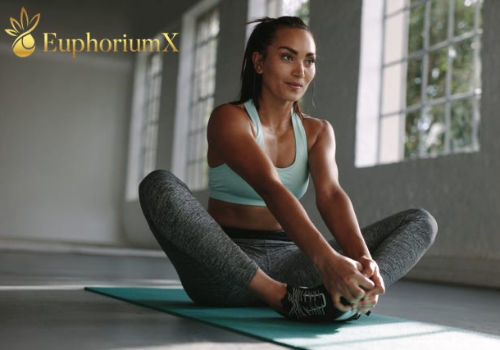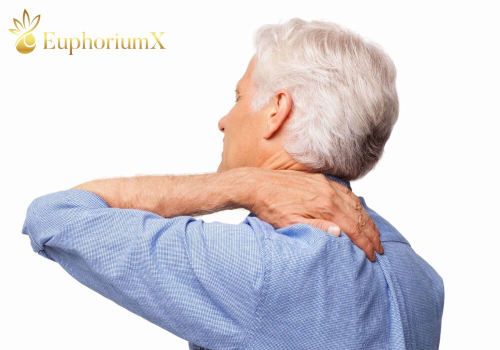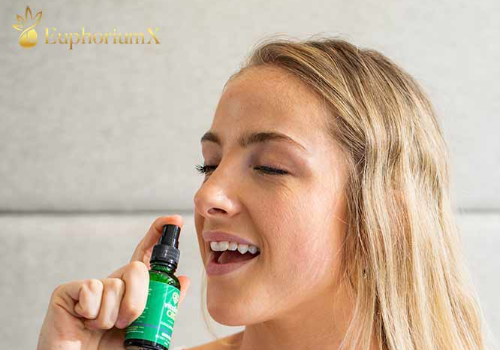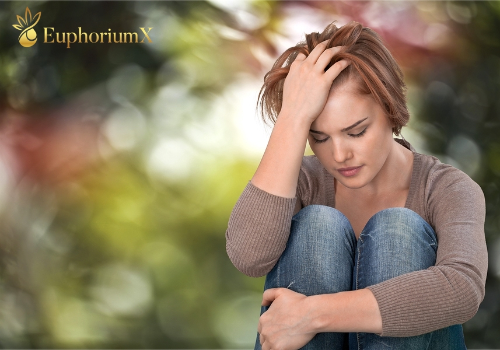


CBD is becoming a popular, natural therapeutic used by many to relieve pain and inflammation.As it becomes more mainstream, weare learning more about CBD and how it can be used. One particularly promising area is CBD for muscle recovery.
When we exercise, our muscles go through stress and strain.This can lead to inflammation, pain, and a decrease in performance.CBD is a potentially effective anti-inflammatory, which means it could help reduce the inflammation associated with muscle recovery.In addition, CBD is also a potential pain reliever, meaning it may relieve any pain associated with muscle soreness.
In this article, we'll take a look at the latest research on CBD and muscle recovery and explore how CBD may be able to help you recover and get back in the gym faster.
CBD, or cannabidiol, is one of the numerous cannabinoids found in the cannabis plant.Unlike THC (tetrahydrocannabinol), CBD does not produce any intoxicating effects.
Instead, CBD interacts with the body's endocannabinoid system to promote balance and homeostasis.The endocannabinoid system (ECS)contains a network of receptors and neurotransmitters that regulate many essential functions, including pain, inflammation, mood, and sleep.
CBD interacts with these cannabinoid receptors to help modulate these functions.It also helps the cannabinoids naturally produced by our body, known as endocannabinoids, function more effectively.
Delayed onset muscle soreness (DOMS) is the pain and stiffness that you feel a day or two after a challenging workout.DOMS is caused by small tears in your muscle fibers and is perfectly normal.However, the inflammation associated with DOMS can feel uncomfortable and make it difficult to move or exercise.
CBD is a potent anti-inflammatory agent, and studies have shown that it can help to reduce inflammation associated with exercise.CBD may also help reduce muscle spasms and cramping, further contributing to pain relief.
CBD is believed to have anti-inflammatory and antioxidant properties. In addition, CBD is thought to work by reducing inflammation at the site of injury and by modulating the pain signals sent by the nervous system.
Potential antioxidant properties may also help protect cells and reduce exercise-induced muscle damage. In addition, CBD may potentially help with several other conditions characterized by inflammation and pain, such as arthritis and migraines.
By assisting our bodies in managing pain and inflammation, CBD may help us recover from exercise more quickly.
CBD may also help improve circulation and blood flow.CBD is a potential vasodilator, meaning it helps to widen blood vessels.This increased blood flow can help deliver nutrients and oxygen to muscles more quickly, which may aid in the recovery process.
Preliminary research has shown that CBD may help improve exercise performance by aiding several bodily functions.CBD may also help reduce perceived pain during exercise, allowing you to push yourself harder and for more extended periods.
CBD may also help to reduce stress and anxiety.CBD has been shown to have anti-anxiety and stress-relieving effects. In addition, CBD may help you feel more relaxed both before and after exercise, aiding in the recovery process.
CBD is thought to work by reducing levels of the stress hormone cortisol.Cortisol is released in response to stress and can increase inflammation. Therefore, CBD may help to reduce cortisol levels and, in turn, inflammation.
CBD may offer a more natural and effective alternative to painkillers.CBD is non-addictive and generally better tolerated than other medications you may be taking.CBD is also relatively safe, with few side effects and no risk of overdose.
Painkillers, on the other hand, can be addictive and often come with a host of unwanted side effects, including drowsiness, gastrointestinal distress, addiction, and liver damage.CBD may offer a more natural and effective alternative for those seeking relief from exercise-induced pain and inflammation.
If you're on medications and interested in trying CBD, speak with your doctor first to ensure that it's safe for you.
Unfortunately, there is still a lack of clinical research on CBD and muscle recovery specifically.Most of the available research has been done on animals.
While more research is needed, these animal studies suggest that CBD may be a promising natural treatment for reducing inflammation and pain and helping muscles recover more quickly from exercise.
In addition to having potential muscle recovery and exercise-enhancing properties, CBD may also help those experiencing restlessness and insomnia.Poor sleep quality can impede muscle recovery, so CBD may be able to help you get the restful sleep you need to recover fully.
If you have trouble unwinding after a workout, try the following tips:
Although these steps and CBD can help, it's important to remember that CBD is not a miracle cure-all, and it's not going to fix all of your muscle aches and pains instantly.CBD may help reduce inflammation and pain, but it's still important to allow your body time to rest and recover.
There is no one-size-fits-all CBD dosage. The amount you'll need for muscle recovery will depend on several factors, including your weight, the severity of your pain or inflammation, and your body chemistry.
It's always best to start with a lower dose and increase gradually as needed. For example, when using CBD for muscle recovery, you may find that you need to take it for several days or weeks before you notice any effects.
If you're new to CBD or using it for the first time for muscle recovery, start with a low dose (10-25 mg per day) and increase gradually as needed.You can take CBD oil by mouth, use a CBD topical, or vape CBD.
CBD is considered safe by the World Health Organization, but it can cause side effects like dry mouth, diarrhea, and fatigue.It may also interact with some medications.If you're taking any medications, talk to your doctor before using CBD.
Athletes are always searching for a competitiveadvantage, and many are turning to CBD to alleviate pain relief and inflammation.It is a popular choice for athletes because it is natural and has very few side effects.
As CBD and other cannabinoids become destigmatized, we're likely to see more athletes come forward about their CBD usage.In the meantime, many professional and amateur athletes already use CBD to help with pain relief, inflammation, and recovery.
In one survey of cyclists, triathletes, and runners, nearly one-third said they had used CBD.
When first starting a CBD regimen for muscle recovery, it's crucial to track your progress and goals.CBD may help with muscle recovery, but it's still important to allow your body the time it needs to rest and recover.
Start by keeping a CBD journal, where you track the CBD products you're using, the dosage, how you're taking it (oil, topical, vape), and how it's helping with muscle recovery.CBD may potentially help to decrease inflammation and pain, but it's still important to allow your body the extra time it needs to rest and recover properly.
If you're looking for CBD products to help with muscle recovery, we recommend starting with CBD oil.CBD oil is a popular treatment among athletes because it's natural, fast-acting, and easy to take.
Applying CBD topically is another popular choice for athletes because it can be used directly in the area of discomfort. Furthermore, vaping CBD offers one of the quickest ways to experience the effects of CBD. CBD is absorbed directly into the bloodstream when vaped, providing almost immediate relief.
CBD is a promising natural remedy for pain relief and inflammation, and it may help muscles recover more quickly from exercise.CBD is generally safe, but it can cause side effects like dry mouth, diarrhea, and fatigue.
If you're taking any medications, talk to your doctor before using CBD.When first starting a CBD regimen for muscle recovery, it's important to track your progress and goals.Start by keeping a CBD journal, where you track the CBD products you're using, the dosage, how you're taking it (oil, topical, vape), and how it's helping with muscle recovery.
If you're interested in using CBD for muscle recovery, check out our selection of CBD oils and vapes.At EmporiumX, we are dedicated to formulating CBD products of the highest quality and potency.
What are your thoughts on using CBD for muscle recovery?Let us know in the comments below!
Sources:
https://www.medicalnewstoday.com/articles/endocannabinoid
https://sportsmedicine-open.springeropen.com/articles/10.1186/s40798-022-00417-y
https://www.ncbi.nlm.nih.gov/pmc/articles/PMC3579247/
https://link.springer.com/article/10.1186/s40798-020-00251-0
https://www.ncbi.nlm.nih.gov/pmc/articles/PMC4604171/
https://www.ncbi.nlm.nih.gov/pmc/articles/PMC6326553/pdf/18-041.pdf
https://www.who.int/news-room/questions-and-answers/item/cannabidiol-(compound-of-cannabis)
https://www.med.upenn.edu/cbti/assets/user-content/documents/s11920-017-0775-9.pdf



